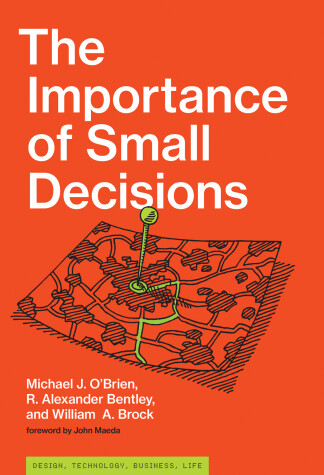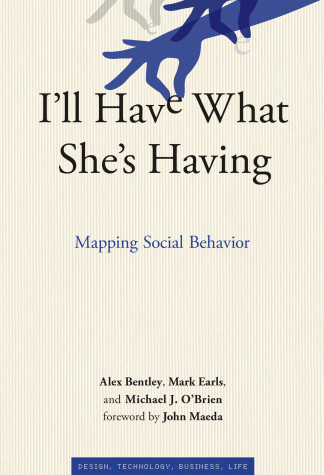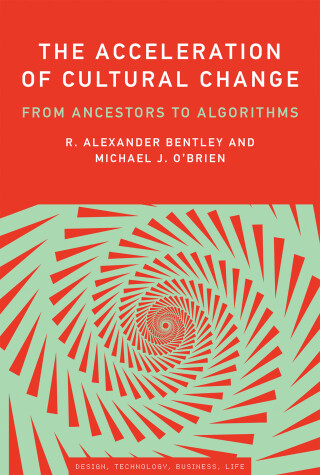Simplicity: Design, Technology, Business, Life
3 total works
The Importance of Small Decisions
by Michael J. O'Brien, R. Alexander Bentley, and William A. Brock
Humans originally evolved in a world of few choices. Prehistoric, preindustrial, and predigital eras required fewer decisions than today's all-access, always-on world of too much information. Economists have largely discarded the idea that agents act rationally and the market follows suit. It seems that no matter how small or innocuous a decision might seem, there's almost no way to guess the effect it might have. The authors of The Importance of Small Decisions view decisions and their outcomes from a different perspective: as key elements in the evolution of culture. In this trailblazing book, they examine different kinds of decisions and map the outcomes, both short- and long-term. Drawing on this, they introduce a map of social behavior that captures the essential elements of human decision-making.
The authors look at the New England Patriots' decision in 2000 to draft an underachieving college quarterback named Tom Brady; they consider Warren Buffett's investment strategy; and they chart the “dancing landscape” of a college applicant's decision-making environment. Finally, they show that decisions can be ranked according to transparency of choice and social influence. When fake news seems indistinguishable from real news and when the internet offers a cacophony of voices, they warn, we can't afford to crowdsource our decisions.
I'll Have What She's Having
by R. Alexander Bentley, Mark Earls, and Michael J. O'Brien
Humans are, first and foremost, social creatures. And this, according to the authors of I'll Have What She's Having, shapes—and explains—most of our choices. We're not just blindly driven by hard-wired instincts to hunt or gather or reproduce; our decisions are based on more than “nudges” exploiting individual cognitive quirks.
I'll Have What She's Having shows us how we use the brains of others to think for us and as storage space for knowledge about the world. The story zooms out from the individual to small groups to the complexities of populations. It describes, among other things, how buzzwords propagate and how ideas spread; how the swine flu scare became an epidemic; and how focused social learning by a few gets amplified as copying by the masses. It describes how ideas, behavior, and culture spread through the simple means of doing what others do.
It is notoriously difficult to change behavior. For every “Yes We Can” political slogan, there are thousands of “Just Say No” buttons. I'll Have What She's Having offers a practical map to help us navigate the complex world of social behavior, an essential guide for anyone who wants to understand how people behave and how to begin to change things.
The Acceleration of Cultural Change
by R. Alexander Bentley and Michael J. O'Brien
From our hunter-gatherer days, we humans evolved to be excellent throwers, chewers, and long-distance runners. We are highly social, crave Paleolithic snacks, and display some gendered difference resulting from mate selection. But we now find ourselves binge-viewing, texting while driving, and playing Minecraft. Only the collective acceleration of cultural and technological evolution explains this development. The evolutionary psychology of individuals—the drive for “food and sex”—explains some of our current habits, but our evolutionary success, Alex Bentley and Mike O'Brien explain, lies in our ability to learn cultural know-how and to teach it to the next generation. Today, we are following social media bots as much as we are learning from our ancestors. We are radically changing the way culture evolves.
Bentley and O'Brien describe how the transmission of culture has become vast and instantaneous across an Internet of people and devices, after millennia of local ancestral knowledge that evolved slowly. Long-evolved cultural knowledge is aggressively discounted by online algorithms, which prioritize popularity and recency. If children are learning more from Minecraft than from tradition, this is a profound shift in cultural evolution.
Bentley and O'Brien examine the broad and shallow model of cultural evolution seen today in the science of networks, prediction markets, and the explosion of digital information. They suggest that in the future, artificial intelligence could be put to work to solve the problem of information overload, learning to integrate concepts over the vast idea space of digitally stored information.


